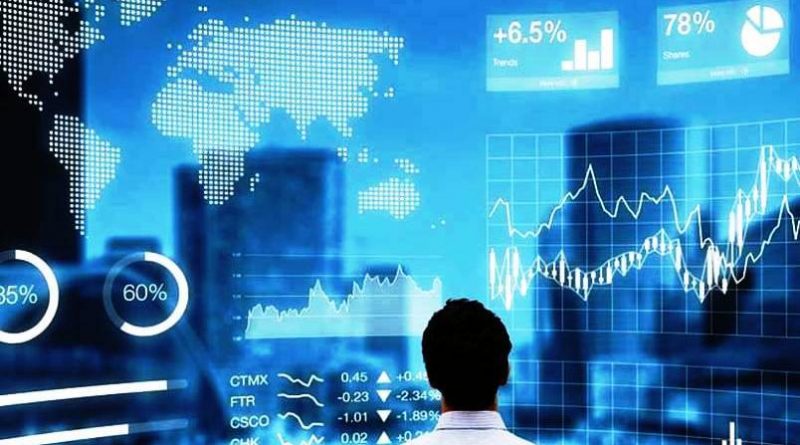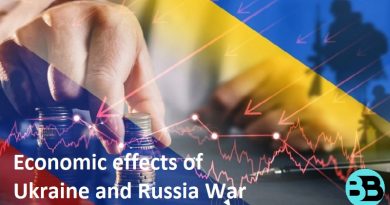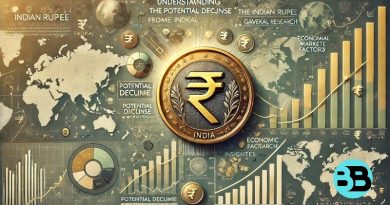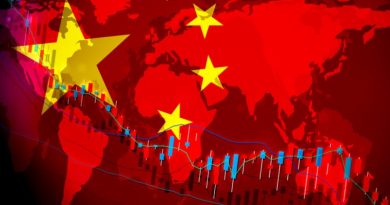Global Economy – History, Structure, Dynamics & Challenges.
The global economy refers to the interconnected system of economic activity that takes place across the world, involving the production, consumption, and exchange of goods and services. It encompasses the economic activity of all countries and regions, including trade, investment, and financial flows, and is shaped by a variety of factors such as government policies, technological innovation, and market forces. The global economy is often characterized by its complexity and interdependence, with changes in one part of the world having the potential to affect economic conditions and outcomes in other parts of the world.
In this essay, we will explore the key features of the global economy, including its history, structure, and dynamics. We will also examine some of the major challenges and opportunities facing the global economy in the present day, such as globalization, inequality, and technological change.
History of the Global Economy
The history of the global economy can be traced back to the earliest human civilizations, which engaged in trade and exchange with other communities and regions. However, it was not until the emergence of the modern era, with its advances in transportation, communication, and finance, that the global economy truly began to take shape.
One of the key developments in the history of the global economy was the rise of European colonialism and imperialism, which led to the exploitation of resources and labor in other parts of the world. This colonial era also saw the development of new trade routes and networks, including the transatlantic slave trade and the East India Company, which laid the foundation for modern global trade.
In the 19th century, the global economy underwent significant changes as a result of the Industrial Revolution, which brought about new technologies and modes of production, and transformed the nature of work and employment. This period also saw the emergence of new forms of economic organization, such as corporations and multinational companies, which expanded their operations across national borders.
In the 20th century, the global economy was shaped by a number of major events, including the two world wars, the Great Depression, and the rise of communism and socialism in many parts of the world. The post-World War II period saw the establishment of new international institutions and frameworks, such as the Bretton Woods system and the World Trade Organization, which sought to promote international cooperation and free trade.
Structure of the Global Economy
The global economy is structured around a number of key actors and institutions, including governments, corporations, financial institutions, and international organizations. These actors play different roles and have different interests and objectives, but are all interconnected and interdependent in various ways.
Governments are one of the most important actors in the global economy, as they are responsible for setting policies and regulations that shape economic activity within their borders. Governments also engage in international economic relations, such as trade agreements, and may provide financial support to businesses and industries.
Corporations and businesses are another important component of the global economy, as they are responsible for the production and distribution of goods and services. These companies may operate in multiple countries and regions, and may have complex supply chains and production networks. They may also engage in international trade and investment, and may have significant influence over government policies and regulations.
Financial institutions, such as banks and investment firms, are also critical to the functioning of the global economy, as they provide the capital and financial services that enable economic activity to take place. These institutions may also engage in international financial flows, such as lending and investment, which can have significant impacts on economic conditions and outcomes in different parts of the world.
Finally, international organizations such as the World Trade Organization, the International Monetary Fund, and the World Bank play important roles in shaping the global economy, by providing rules and frameworks for international economic cooperation, and by providing financial support and technical assistance to countries and regions in need.
Dynamics of the Global Economy
The global economy is constantly evolving and changing, as a result of a variety of factors such as technological innovation, political events, and shifts in consumer demand. Some of the key dynamics that shape the global economy include globalization, inequality, and technological change.
Globalization are refers to the increasing interconnectedness and interdependence of the world economies, societies, and cultures. This trend has been driven by advances in transportation, communication, and finance, which have made it easier for goods, services, and information to flow across national borders. Globalization has created new opportunities for businesses and individuals, but has also led to greater competition, job insecurity, and environmental degradation.
Inequality is another major dynamic that affects the global economy, as there are significant disparities in income, wealth, and opportunities between different countries and regions, as well as within individual countries. These inequalities can be attributed to a variety of factors, such as historical legacies of colonialism and imperialism, uneven access to resources and markets, and policies that favor the interests of the wealthy and powerful.
Technological change is also a major driver of the global economy, as new technologies and innovations have the potential to transform the way we produce, consume, and exchange goods and services. Some of the most significant technological developments in recent years include the rise of artificial intelligence and automation, the growth of e-commerce and digital platforms, and the increasing use of renewable energy and other sustainable technologies. These changes have created new opportunities for growth and innovation, but have also raised concerns about job displacement, privacy and security, and environmental sustainability.
Challenges Facing the Global Economy
The global economy faces a number of major challenges in the present day, which require innovative and collaborative solutions from governments, businesses, and civil society. Some of the most pressing challenges include climate change, political instability and conflict, and inequality and poverty.
Climate change is one of the most urgent and complex challenges facing the global economy, as it poses a threat to the long-term sustainability of economic activity and human well-being. Climate change is caused by the release of greenhouse gases, primarily carbon dioxide, from human activities such as burning fossil fuels and deforestation. To address this challenge, governments and businesses must work together to reduce greenhouse gas emissions, transition to renewable energy sources, and develop new technologies and policies that promote sustainability and resilience.
Political instability and conflict are also major challenges facing the global economy, as they can disrupt economic activity and create uncertainty and risk for businesses and investors. Some of the causes of political instability and conflict include ethnic and religious tensions, economic inequality and exclusion, and competition for resources and power. To address these challenges, governments and civil society must work together to promote peaceful and inclusive societies, protect human rights and dignity, and foster economic development and opportunity.
Inequality and poverty are also major challenges facing the global economy, as they undermine social stability, economic growth, and human well-being. To address these challenges, governments and businesses must work together to promote more equitable and inclusive economic systems, provide access to education and healthcare, and support vulnerable and marginalized communities.
Conclusion: The global economy is a complex and dynamic system that shapes the lives and well-being of people around the world. It is structured around a variety of actors and institutions, and is shaped by a range of factors such as globalization, inequality, and technological change. While the global economy presents significant opportunities for growth and development, it also faces major challenges such as climate change, political instability, and inequality and poverty. To address these challenges, governments, businesses, and civil society must work together to promote sustainable and inclusive economic systems, protect human rights and dignity, and foster peace, prosperity, and well-being for all.
Read also:
How might changes in China’s economic growth affect global markets?
Global Economic Challenges and Opportunities




